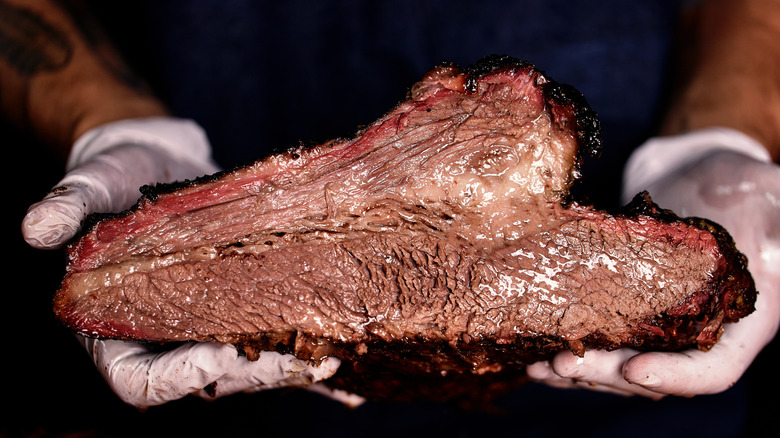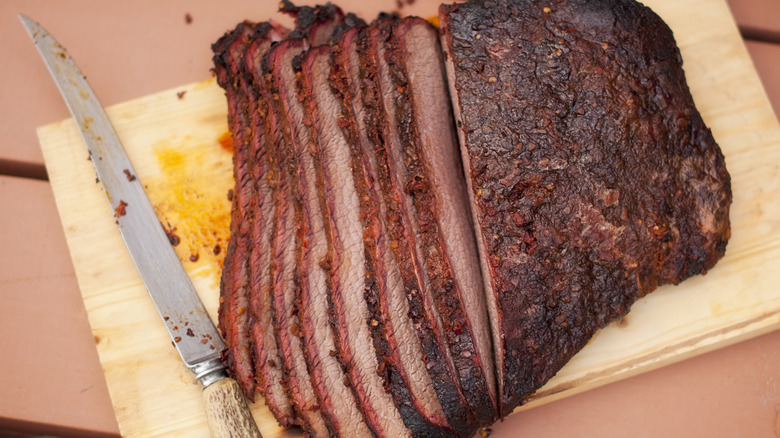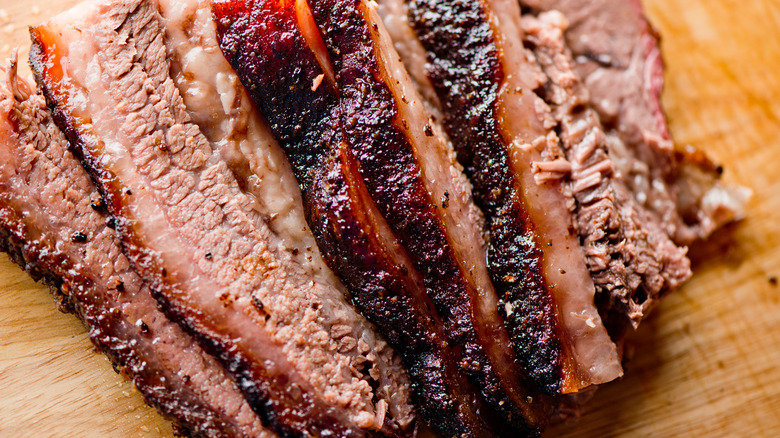Why Brisket Is The Ultimate Challenge When It Comes To Smoking Meat
Grilling meat is something most Americans have done at least once in their lives, but smoking meat is the true backyard barbecue challenge. Imbuing a beautiful cut of meat with smoke flavor without overdoing it and creating an acrid mess is something that takes both time and skill. There are all sorts of pitfalls, like not following the 3-2-1 rule or using too many wood chips. Even that leaves out the difficulties in smoking with some cuts of meat versus others.
Unsurprisingly, certain meats are way more difficult to smoke than others, but which variety is the ultimate challenge, even for experienced smoke masters? It should come as no surprise that the answer is brisket. It's not just that it takes quite a while — 10-12 hours at a go — it's that brisket's very composition as a cut of meat that makes it an especially finicky mistress.
Brisket is by nature a tough cut that needs time
Brisket is the holy grail for pit masters for a reason: It's not just that it's delicious; it's that it's much trickier than a lot of other options. To understand why, it's essential to understand what brisket is in the first place.
As a cut of meat from the lower chest of a cow, brisket is maybe the part of the animal most responsible for supporting its weight — and if you're familiar with cows, you're probably aware they weigh quite a lot. As a result, brisket tends to be lean muscle without much fat and contains a lot of connective tissue. This is the reason it has to be cooked slowly: That connective tissue needs time to break down. It's why smoking or braising are the preferred methods for cooking brisket and why grilling it is a terrible idea; high heat causes it to become tough and inedible.
There are tricks you can use to keep the meat juicy
But that lack of fat also leaves you with less margin for error. Excess fat lends juiciness to meat because as it breaks down, it essentially marinates the meat in its own juices. Without that to rely on, the slow cooking time of brisket means you have to get creative to keep it from drying out.
There are a few handy ways to do this, though. For one thing, you can inject your brisket with beer or other marinade liquids ahead of time, fostering as much moisture within it as possible. You can also wrap it in either butcher paper or tin foil, depending on whether your priority is creating a better bark or keeping the meat even juicier.
Whichever methods you use, it's important to give the brisket the time and care it demands. As long as you treat it right, it should treat you right.


